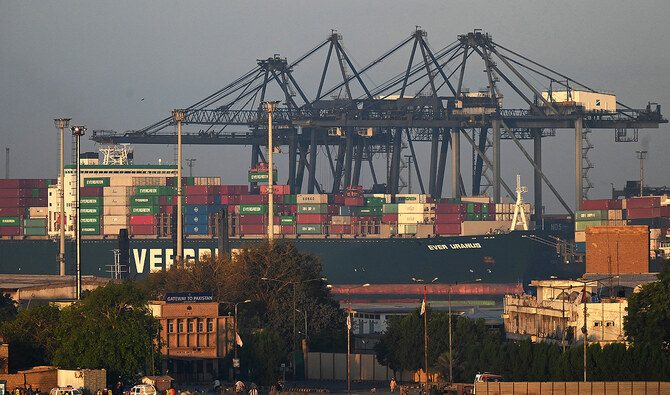Bangladesh’s renewed trade initiative sees a crucial agreement to import 50,000 tons of Irri rice from Pakistan via the Trading Corporation of Pakistan

News Desk
KARACHI: Pakistan and Bangladesh have taken a historic step in re-establishing direct trade ties, with the first government-backed cargo ship setting sail from Port Qasim. This marks the first official commercial engagement between the two nations since the fall of Dhaka, restoring long-dormant trade relations that had been severed for decades. The resumption of direct trade not only revives economic cooperation but also signals a broader shift in diplomatic relations between Islamabad and Dhaka, opening new avenues for commercial engagement that had long been overshadowed by historical and political complexities.
At the heart of this renewed trade initiative is a significant agreement under which Bangladesh will import 50,000 tons of Irri rice from Pakistan through the Trading Corporation of Pakistan (TCP). The deal, finalized in early February, is being executed in two phases, with the first consignment already en route and the second, comprising 25,000 tons, expected to arrive in Bangladesh in early March. While the trade of rice serves as the immediate catalyst, the implications of this agreement stretch far beyond a single transaction. It lays the groundwork for a larger framework of direct commercial exchanges, addressing longstanding logistical and connectivity barriers that have hindered bilateral trade for years.
A key development accompanying this trade resumption is the re-establishment of direct shipping routes between Pakistan and Bangladesh. In a landmark moment, a vessel from the Pakistan National Shipping Corporation (PNSC) is set to dock at a Bangladeshi port for the first time, carrying government cargo. This direct shipping link is expected to streamline trade logistics, reduce dependency on third-country transshipment points, and lower overall freight costs—factors that have historically made trade between the two nations inefficient and costly. The move not only strengthens Pakistan’s position as a key supplier of essential commodities to Bangladesh but also enhances regional maritime connectivity, creating a more efficient trade corridor.
The revival of direct trade comes at a time when both Pakistan and Bangladesh are exploring ways to deepen economic cooperation amid shifting regional dynamics. This move is widely seen as an effort to break away from the inertia of the past and to foster pragmatic economic collaboration. While political relations between the two countries have often been complex, economic engagements of this scale have the potential to reshape bilateral ties, bringing mutual benefits to both economies.




1 Comment
Hi there colleagues, how is all, and what you want to say regarding this article, in my view its
truly awesome for me.